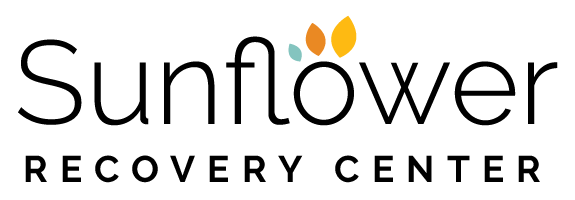It is a painful and confusing standoff when families find themselves in the middle of addiction. Maybe you’ve been here: You’ve watched a loved one spiral. You’ve done the late night Google searches for addiction treatment centers and whispered urgent “What do we do?” conversations with friends. You’re ready to pack their bags. But them? They insist everything is fine. Rehab isn’t necessary. “I’ve got it under control,” they say. “It’s not that bad.” Now what?
Why Rehab? Why Now?
When someone you love is struggling with substance use, the urge to step in and fix it is natural. You see what they can’t - or won’t. Missed work, strained relationships, mounting financial issues, and a personality shift you barely recognize. You’re desperate for them to see the light and turn things around before it’s too late.
But here’s the truth - fixing things is enabling them and it’s a temporary fix at best. Addiction treatment works best when the person is ready to engage with it. This usually doesn’t happen when things are still going “well.” There needs to be an acknowledgement of the problem. Without that basic level of self-awareness, treatment can feel forced, and progress might stall.
Denial: The Addict’s Greatest Ally
Denial is a powerful defense mechanism, and addiction loves it. Denial lets someone believe they can quit whenever they want, that their drinking or drug use isn’t that bad, or that they’re only hurting themselves.
From the outside, it’s maddening to witness. You can point to every sign of addiction and still, they won’t budge. Why? Because denial is more than just being stubborn. It’s fear. Fear of losing their coping mechanism. Fear of facing the wreckage they’ve created. Fear of change.
Breaking through denial takes time, patience, and sometimes, a wake-up call. This is where interventions, heart-to-heart talks, and yes, even ultimatums can come into play.
But What If They’re “Functioning”?
Ah yes, the “functioning addict.” They manage to hold down a job, pay the bills, and maybe even excel at hobbies or fitness. They argue that their substance use isn’t affecting their life, so rehab is for sure not necessary. But here’s the kicker: functioning isn’t thriving.
Even if everything looks fine on the outside, addiction works like termites, eating away at the mental, emotional, and physical foundations. Eventually, cracks will show. The sooner treatment begins, the better the chances of long-term recovery. Everyone is “functioning” until they’re not.
Signs It’s Time for Rehab
If you’re still unsure whether rehab is the right call, consider these questions:
- Have they tried to quit but can’t? If they’ve sworn off drinking or drugs “for good” only to relapse, it’s a sign they need more support.
- Is their substance use escalating? Addiction thrives on tolerance. What started as one drink or pill might now be five or ten.
- Are their relationships suffering? Addiction doesn’t exist in a vacuum. If conflicts are increasing, trust is eroding, or loved ones are pulling away, it’s a red flag.
- Is their health declining? Whether it’s frequent illnesses, weight changes, or unexplained injuries, addiction leaves a mark.
- Is their behavior unpredictable or unsafe? Risky choices like driving under the influence, financial recklessness, or legal issues signal deeper problems.
If you answered “yes” to one or more of these, it’s time to seriously consider rehab.
When They Say No: What to Do
So, what if they outright refuse rehab? Do you give up? No. But you may need to shift your strategy.
Educate yourself.
The more you understand addiction, the better equipped you’ll be to help.
Set boundaries.
Supporting someone doesn’t mean enabling them. Learn to say no to behaviors that perpetuate their addiction.
Keep the conversation going.
Change doesn’t happen overnight. Keep planting seeds of encouragement and concern.
Get support.
Whether it’s Al-Anon, therapy, or a trusted friend, find people who can help you process your emotions and stay strong.
Rehab Isn’t About Being “Right”
At the end of the day, the goal isn’t to win an argument. It’s to help someone heal. Addiction is a cunning, baffling disease that thrives on division. The more united you are as a family, the harder it is for addiction to maintain its grip.
If your loved one is teetering on the edge of saying yes, Sunflower Recovery Center is here to catch them. With personalized treatment plans, a supportive community, and a track record of success, we’re ready to walk alongside them, and you. Give us a call today.

